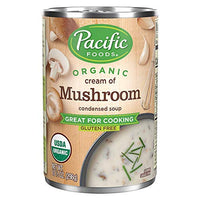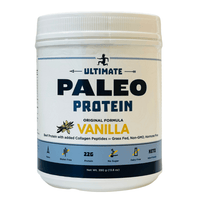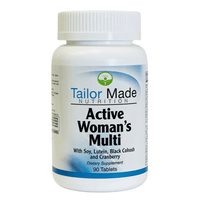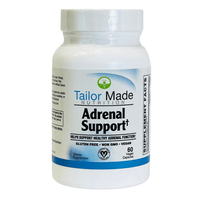
QUERCETIN ALLEVIATES ALLERGIES AND ASTHMA
Kylie BanfieldThis article originally appeared in Good Health Lifestyles Magazine
Research Roundup
The Study Abstract:
Jafarinia M, Sadat Hosseini M, Kasiri N, et al. Quercetin with the potential effect on allergic diseases. Allergy Asthma Clin Immunol. 2020 May;16:36.
Quercetin is a naturally occurring polyphenol flavonoid that is rich in antioxidants. It has anti-allergic functions that are known for inhibiting histamine production and pro-inflammatory mediators. Quercetin can regulate the Th1/Th2 stability and decrease the antigen specific IgE antibody releasing by B cells. Quercetin has a main role in anti-inflammatory and immunomodulatory function, which makes it proper for the management of different diseases. Allergic diseases are a big concern and have high health-care costs. In addition, the use of current therapies such as ß2-agonists and corticosteroids has been limited for long-term use due to their numerous side effects. Since the effect of quercetin on allergic diseases has been widely studied, in the current article, we review the effect of quercetin on allergic diseases, such as allergic asthma, allergic rhinitis (AR), and atopic dermatitis (AD).
WHAT THIS MEANS FOR YOU:
If you deal with seasonal allergies or asthma, they are, at best an annoyance. But for some, allergies are a potentially serious condition. They can lead to chronic bronchitis and pneumonia because the irritation and extra mucus production they cause can set up the perfect breeding ground for a bacterial infection.
Unfortunately, many of the drugs used to treat allergies and asthma are themselves unhealthy, causing unpleasant side effects, including insomnia, brain fog, fatigue, dizziness, nausea, increased heart rate and blood pressure, and difficulty with urination.
Fortunately, an ever-growing body of academic and laboratory research shows that quercetin, a natural compound found in apples, grapes, onions, tea, and various herbs may provide a safer, yet effective, answer. Quercetin inhibits mast-cell and eosinophil activation, relaxes the trachea, and reduces inflammatory compounds in cells that line the inside of the lungs.
And because of its regulating actions on histamine levels and its ability to reduce bronchial and sinus congestion, quercetin can reduce the body’s reactivity to allergens and make asthma symptoms less severe.
Download this article as a PDF
Lean about Tailor Made Nutrition Quercetin 500 Plus HERE











